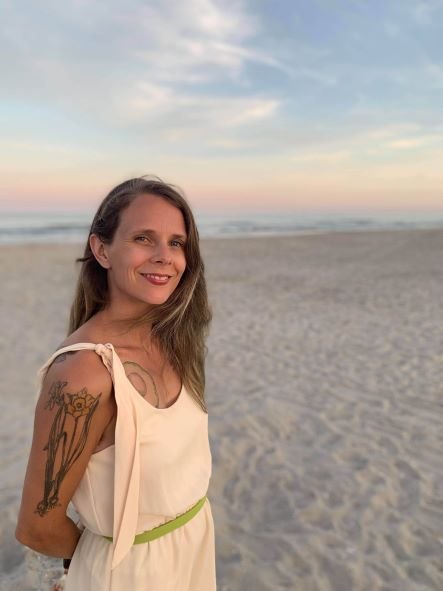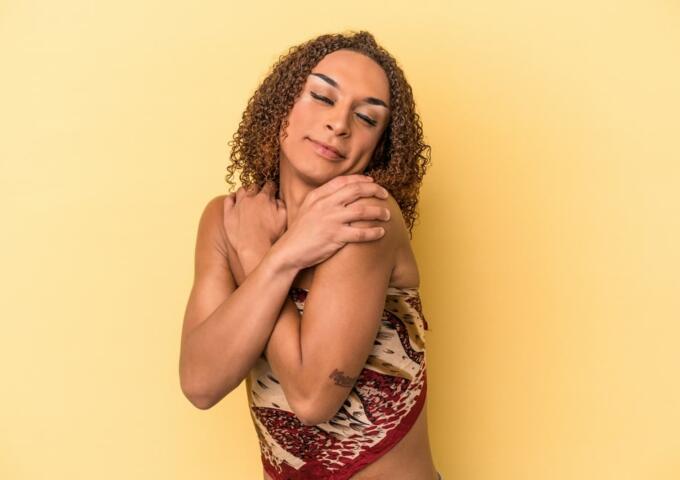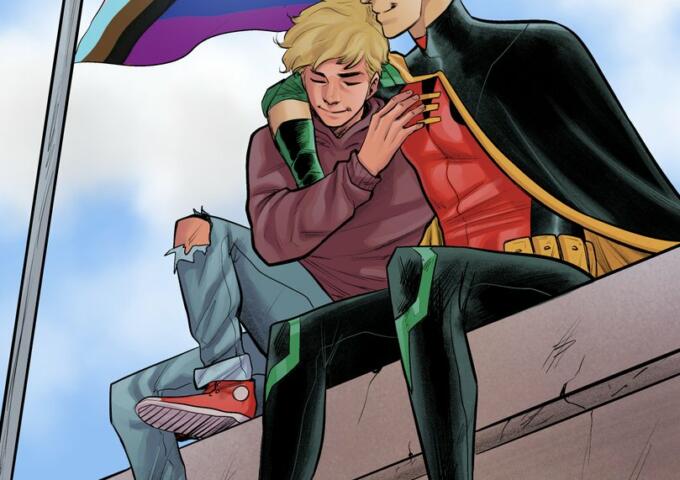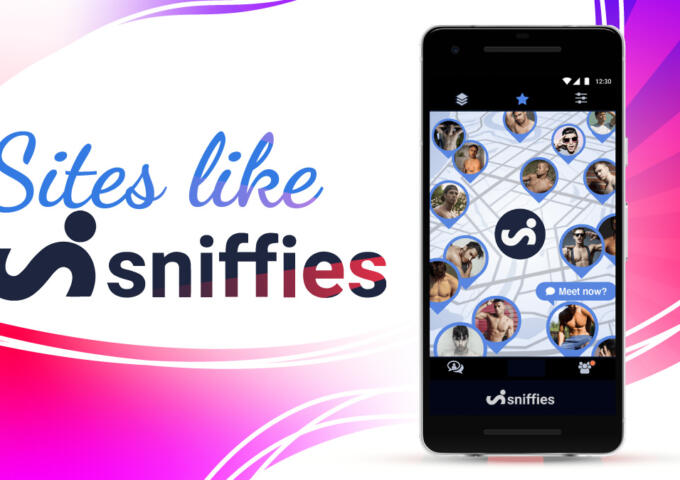“Many people in the poly and LGBTQ+ community may not be open with their families, which can lead to partners being left out of healthcare decisions,” says Death Doula Jill McClennen.
A death doula, according to McClennen, “is a non-medical person trained to care for someone holistically, considering the whole person’s needs at the end of life” The doula helps with emotional, mental, spiritual, and physical needs, she says, and “support people and their loved ones during the end-of-life process, much like a midwife or birth doula does with the birthing process.” The needs of a dying person vary greatly and it’s important for caretakers to know what someone’s wishes are- to be able to honor them.
“When someone suddenly gets ill or an accident happens, doctors will call the next of kin to make healthcare decisions,” she says, adding that if someone is not out to their family as queer, trans or poly, or if their families aren’t accepting, next of kin may not be “the ones we would want to make the decisions for us, and it could lead to heartache within our chosen families.”
This heartache can happen when a trans person is deadnamed and misgendered in the hospital or even at their own funeral services by family members who do not accept their identities. This disrespect may be additional trauma for the deceased’s friends and loved ones, who are already grappling with grief.
For a polyamorous person in a legal system that only recognizes one marriage at a time, failing to prepare end-of-life decisions can lead to rancorous fights over medical, financial, child custody, housing and inheritance issues. This can also be the case with non-married monogamous relationships, as well. With same-sex marriage rights now threatened by a regressive Supreme Court, even legally married couples may need extra protection to ensure their wishes are honored.
Make sure those you love have the say in your end of life. Click here for legal advice.
This is why Clennen, who is poly, specifically sought out information on legal protections for herself and other sexual minorities. Regardless of your identity or relationship status, she says everyone needs: advanced directives (document that states your wishes for care), a durable power of attorney for finances (someone who is in charge of your finances), medical power of attorney (someone who makes healthcare decisions- can be a close friend or even a death doula), and a will for assets and property. There are companies that help with this process, it’s not necessary to hire an attorney.
While everyone will benefit from obtaining those documents, she says, “people in the polyamorous and LGBTQIA+ community especially need it if they do not want family members making decisions for them at the end of life.” If your parents, for instance, would keep your partner out of the loop or prevent them from visiting you in the hospital, you need paperwork that would overrule your next of kin. “When you are filling out this paperwork you can even state in it that you do not want a particular person involved in your healthcare decisions,” she adds.
Another consideration for LGBTQ folks may be the Disposition for Bodily Remains, she says, which gives authority on what happens to your body after death. She’s heard of unaccepting families of trans people using deadnames on burial markers or refusing to let loved ones say goodbye to a body, casket or urn. “Having this paperwork in place can make sure that your wishes are honored,” she says.
Make sure those you love have the say in your end of life. Click here for legal advice.
Having these conversations- even the process of thinking about death- can be extremely challenging. “We are constantly seeing death and dying in movies and TV, but that is not what the reality of it looks like,” McClennen says, adding, “The fear of talking about it, the idea that it will attract death to us is something I hear often.” Tackling this taboo subject hasn’t always been easy for her, either. “As I worked with my own fears around death and dying, which I didn’t think I had any until I started doing this work, I found that it has taught me to really appreciate every moment in life because I honestly don’t know when my last moment will come,” she says.
McClennen came to her work as a Death Doula as a mid-life career change, after caring for her dying grandmother and being moved by the compassion and professionalism of hospice staff. She “heard the term ‘death doula’ on a podcast and as soon as I heard it, I knew that was what I needed to do.”
“Death doulas recognize death as a natural, accepted, and honored part of life that can be celebrated and not feared,” she says, adding that “part of the work I do is to help people at any stage of life prepare for death, working through their fears about death, and process old grief which helps them live life more fully. There are different techniques I use to do this, one of my favorites is a guided death and rebirth journey where you go through death in order to live your life more fully.”
Make sure those you love have the say in your end of life. Click here for legal advice.
Her work also involves supporting the partners, friends and family who are caretaking for a dying person. “Becoming a caregiver for a loved one is challenging but also an opportunity to be with someone when we can connect with them at a deep level,” she says, adding it’s important to be informed in advance about what the realities of the work will entail and creating a network of support for yourself.
“The most important thing to do when you are an end-of-life caregiver is to be sure you are still taking care of yourself. It is easy to burn out,” she says. “Emotions that come up for a caregiver often get pushed down because they feel like it is selfish to focus on themselves, but that is when there is the most trauma with a loved one dying, because once they die all of the emotions that had been pushed down all rush up along with the grief. She has published a journal for caregivers to create a supportive framework for the process.
“If we were born, we have to die. That is the reality,” McClennen says, adding that “Death does not have to be as painful as we make it in our society.”
“It is never too early to think about what you would like for your end-of-life care and to prepare for it by getting it all in writing,” she says. “The best thing we can do is prepare ourselves and our loved ones for it. Healing your fears and anxieties around death and dying will really help you to live a life where you will die with no regrets, and there is help out there to make this process easier for you.”





